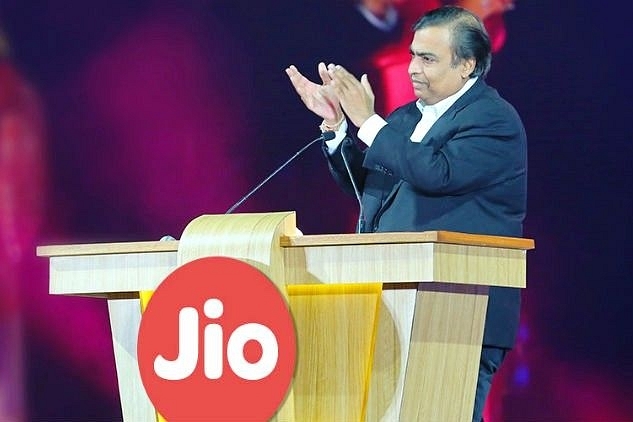
Mukesh Ambani Bet The Farm And Has Won: Jio Is Close To Market Dominance
What is clear from the trends is that Jio now looks set to dominate the Indian telecom services market for what it is worth.
That it has taken just over three years to achieve this is remarkable, and a tribute to Mukesh Ambani’s risk-taking and project execution abilities.
Reliance Jio’s relentless pursuit of market leadership is now showing results in the numbers. It is now No 2 in terms of total subscriber base, and in terms of revenue share it is probably equal with Vodafone Idea. It could become No 1 in terms of revenue market share over the next quarter or two, and No 1 in terms of subscriber base in the next fiscal, if current monthly user addition trends are any guide.
According to data released by the Telecom Regulatory Authority of India for May 2019, Jio topped Bharti Airtel’s subscriber base of 320 million by reporting a 322 million. It is now just 65 million below Vodafone Idea, which reported 387 million active customers in May. But the gap with Vodafone Idea is closing fast, as Jio reported 331 million customers as at the end of June, just 56 million short of the leader.
In terms of revenue market share, Jio is close to walking away with the honours. Though latest quarterly data are not yet available, in the January-March quarter revenue market shares were 32.2 per cent for Vodafone, 31.7 per cent for Jio and 27.3 per cent for Airtel. This indicates that Vodafone Idea, which is yet to shift the bulk of its customers to 4G services, could be losing it top slot very shortly, if it has not already lost it.
In May, Jio gained 8.18 million subscribers while Vodafone lost 5.69 million and Airtel 1.5 million. Clearly, the market has achieved near-saturation coverage of viable customers, and growth is now coming only by one player cannibalising another. Thus far, it is Jio which has been cannibalising Airtel and Vodafone Idea. This might continue in the foreseeable future.
One area in which Jio is already a clear and unbeatable No 1 is broadband services. Taking both wired and wireless broadband, Jio has a market share of 55.5 per cent, while Airtel and Vodafone Idea were distant also-rans with 20.3 per cent and 18.7 per cent respectively.
Come September, which will mark three years of Jio, this Ambani-owned telecom player will have achieved dominance in almost all relevant areas of growth.
Unfortunately for its rivals, Jio is unlikely to be satisfied with this crown. In a presentation made in 2017, it said it was seeking a 50 per cent revenue market share by 2020-21, but as of now this figure is just over 31 per cent. This means raising market share by a further 18-19 per cent by the next fiscal will either involve another bruising tariff war, or slower growth.
Whichever strategy Jio adopts, it will be bad news for its two main rivals, which are huffing and puffing to bring in the necessary investments to grow their 4G networks and buying the required spectrum. And if 5G services are to be launched in 2020-21, there is a massive payment to be made for spectrum later this year or early next fiscal.
What is clear from the above trends is that Jio now looks set to dominate the Indian telecom services market for what it is worth. That it has taken just over three years to achieve this is remarkable, and a tribute to Mukesh Ambani’s risk-taking and project execution abilities. He has bet the farm, invested over Rs 2 lakh crore, and won. Or is very close to winning.